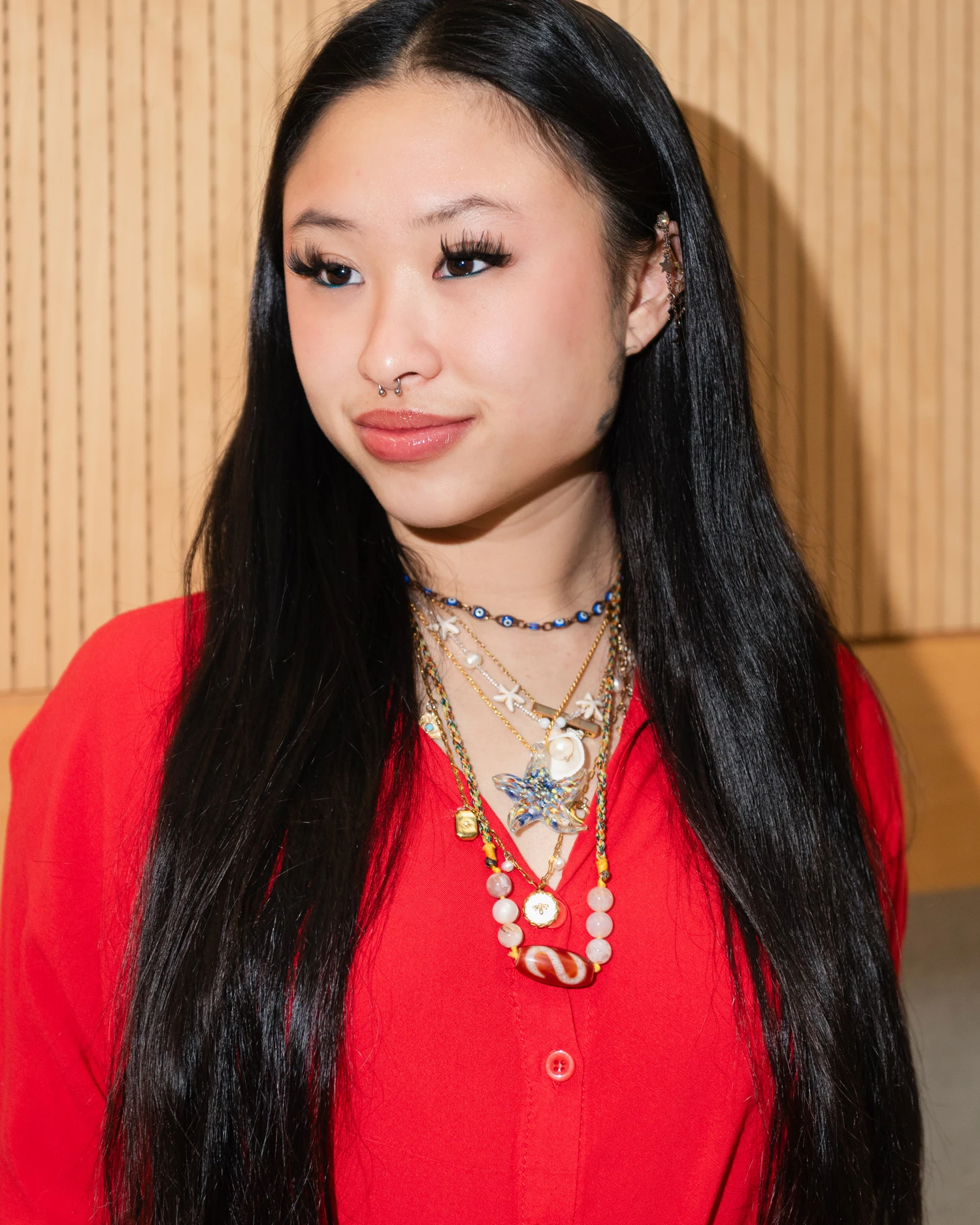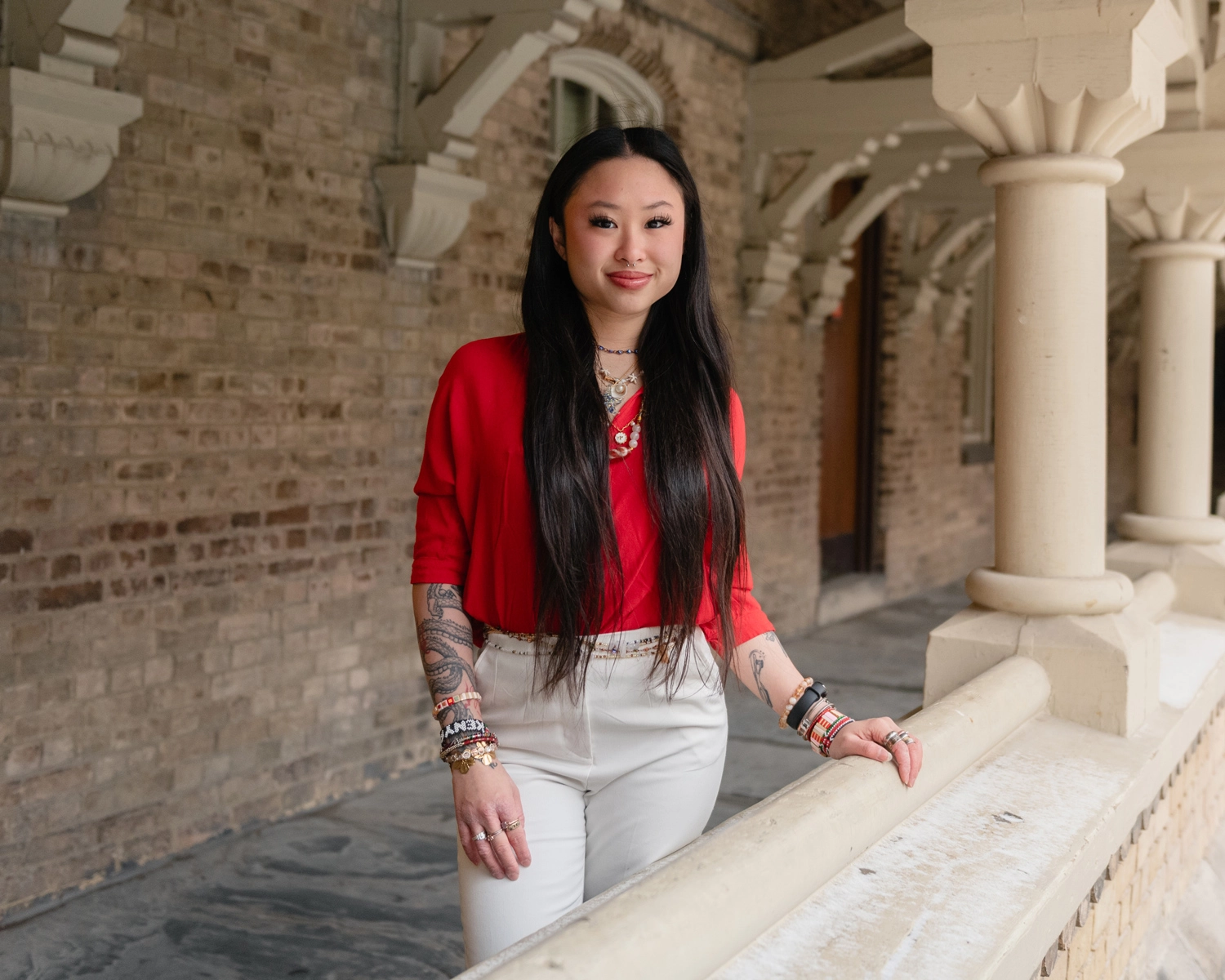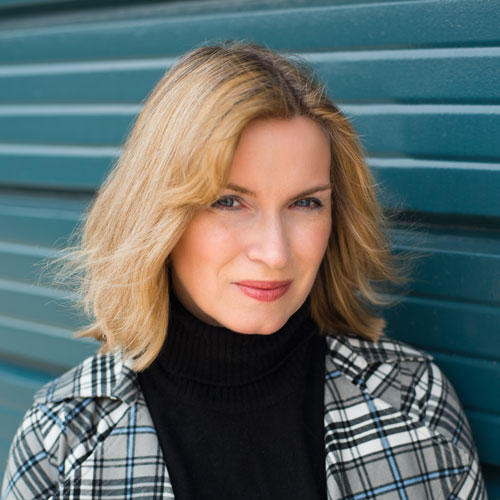Born in Malaysia, Xin Yi Lim was raised in a family where English, Malay, Mandarin and Cantonese were all spoken regularly – but that was merely a jumping off point for her multilingual talents.
Lim, who graduated from U of T last fall with a master of arts, is conversationally proficient in 11 languages – five more than are generally needed for a person to be described as a hyperpolyglot.
In addition to the four languages spoken by her family, Lim now also speaks Indonesian, Spanish, Portuguese, Italian, French, Turkish and Swahili.
And the list continues to grow.
“Languages have opened doors to so many friendships and work opportunities for me,” Lim says. “Learning them is a genuine way of creating connection.”
As part of her master’s degree in Hispanic linguistics with a collaborative specialization in diaspora and transnational studies from the department of Spanish and Portuguese, Lim examined how Spanish evolves and changes for bilingual Colombians in Toronto.
She looked specifically at how their exposure to other varieties of Spanish affects their pronunciation. “Toronto’s Latin American population is so diverse, the varieties of Spanish as well as the accents kind of converge over time,” she explains.
Lim’s own linguistic journey began at the age of 12, when she began studying Spanish and, through her school, took part in online language competitions. She was the top scorer for six years. “That’s where my linguistic interests started and flourished,” she says.

Cognitive scientists say there is no definitive reason why some people such as Lim are seemingly able to pick up languages so easily. Monika Molnar, an associate professor at the department of speech-language pathology at the Temerty Faculty of Medicine, observes that language is a highly complex cognitive skill, involving many parts of the brain, which makes it difficult to investigate. “Even if one little element of this system is a bit better, it could make someone very good at languages,” she says.
Research has uncovered one important finding, though: the more languages you already understand, the easier it is to learn a new one. Picking up a sixth language, it turns out, is comparatively much easier than learning a second. This is likely because people who speak multiple languages have a better understanding of how all languages work, Molnar says – they have better “meta-linguistic skills,” which improve with each new language learned.
Lim didn’t intend to focus on languages and linguistics when she arrived at U of T in 2019. She initially enrolled in life sciences with the intention of becoming a cardiac surgeon. But it wasn’t long before she switched to a specialist program in Spanish.
A key turning point came when she took a course on linguistic varieties of Spanish taught by Prof. Laura Colantoni. “She’s an amazing professor and her course was so intriguing, so I decided to pursue linguistics and took more courses with her,” says Lim, who earned a bachelor of arts in Spanish from U of T with a specialist in Hispanic linguistics and a minor in Latin American studies in 2023.
Along the way, she challenged herself by taking a new language course every couple of years. She didn’t need to take a course for Indonesian, though. “Because my dad worked in Indonesia for about 15 years, we picked that up too,” she says.
While she added to her list of languages, Lim also advanced her prowess in skating as a member of the Varsity Blues figure skating team in 2020 and 2021 (she previously competed as a member of the Malaysian junior national team). She also holds a 1st Kyu in Kyokushin karate and is a bartender, mixologist and graphic designer.
When you learn another language, you’re really expanding your cognitive load – and that in turn helps you learn your next language.”
In the near term, Lim hopes to continue skating professionally. Looking further ahead, she hopes to pursue a career that includes her passion for graphic design.
And, no surprise, she also plans to continue expanding her range of languages.
“When you learn another language, you’re really expanding your cognitive load – and that in turn helps you learn your next language,” says Lim, who describes being able to converse in 11 languages as feeling “like I have 11 channels in my brain.”
She acknowledges that keeping each “channel” active can be a challenge. Lim frequently practises with friends and co-workers, and when she isn’t able to find someone to speak, say, Swahili or Turkish, she watches videos in those languages on TikTok or Netflix. She also subscribes to multiple online news channels. “That said, my Swahili is regressing,” she laments, noting that she hasn’t found many native speakers in Toronto to converse with.
Still, Lim says the biggest benefit to speaking so many languages has been her ability to connect with more people and cultures, and credits former South African president Nelson Mandela for inspiring her: “I’ve realized that if I can say even a few words in somebody else’s language, it lets them know how much time, compassion and effort I have for understanding other cultures.”
Next on her list? Arabic. “I’m so interested to learn it. It’s one of the most diverse and popular languages in Toronto, but the script is really challenging,” Lim says.
“That one requires time.”
– With files from Scott Anderson







No Responses to “ Eleven ‘Channels,’ One Mind ”
I "learned" in public school that I had no facility with languages. Much later, I learned that I can pick up languages, just not from a book. I learn from being immersed in the language -- from hearing it and interacting in it. I currently speak, to various degrees of fluency, six languages. Two are related: German and Yiddish. I wish languages were taught in public schools to accommodate different learning styles.
James Thwaites writes:
A fascinating and instructive issue! It particularly interests me because I am comfortable in four languages. My two Germanic languages, English and German, make it easier to understand Dutch. I also speak French and Spanish, both Latin languages, which makes Italian easier for me. I usually refer to speaking multiple languages as living in "parallel universes."